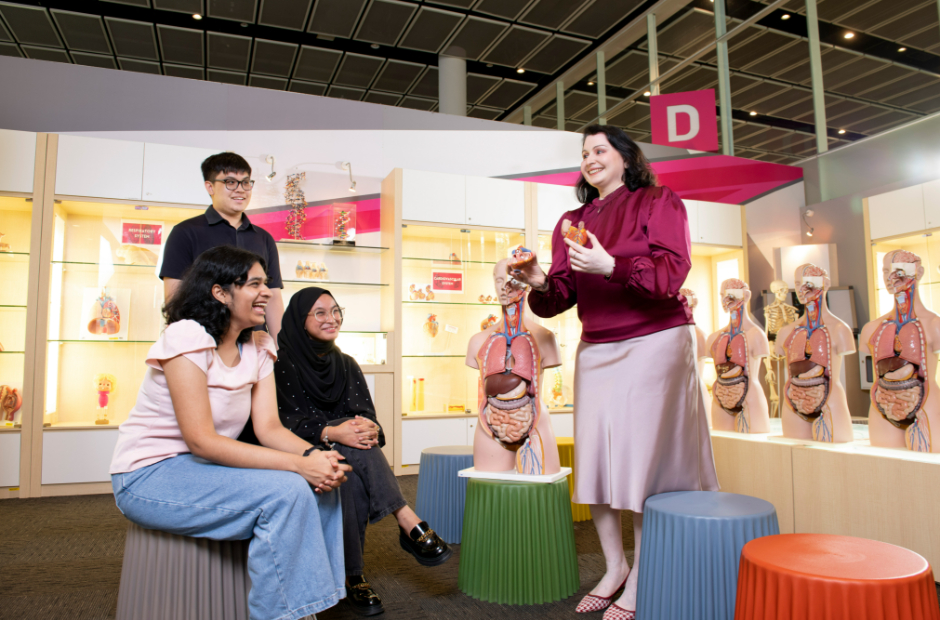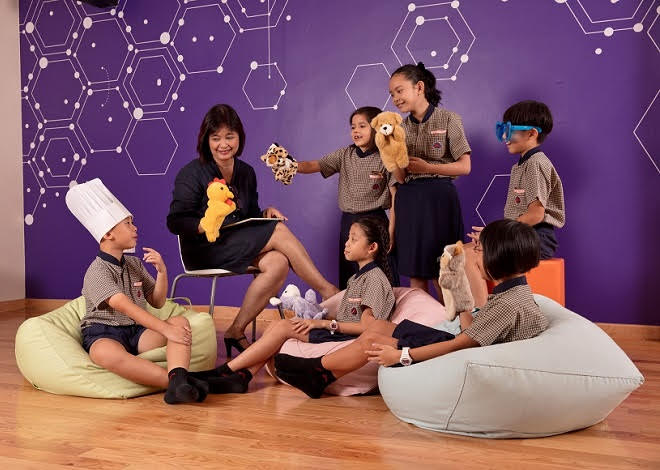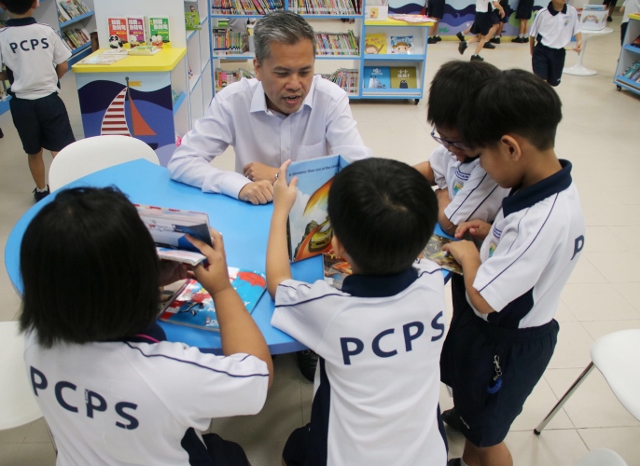When Senior Lecturer Ms Malini D/O Thyagesan first joined Republic Polytechnic (RP) in 2011 to teach Biological Science modules, she felt well-equipped for the job. As an educator for seven years, she had experience teaching in both secondary school and junior college, and was confident of both her disciplinary skills and pedagogy.
Unfortunately, things did not go as well as planned; she saw from her students’ feedback that they were not as enthusiastic about medical laboratory technology, an area that she was very passionate about.
Not one to be discouraged by setbacks, Ms Malini jumped into action with a key mission: What if she helped students see the relevance of what they are learning by demonstrating the real-life industry applications?
Soon, she was reaching out to lab professionals to organise learning journeys to research and diagnostic labs.
The benefit was twofold: When students saw how the labs worked, they were able to contextualise what was taught in class, so that the information was relevant rather than “dry”. They also got to interact with true-blue lab practitioners to gain a better appreciation of the industry.
When the learning journeys were launched, the students lapped them up, and things started to click for Ms Malini too.
Creating a roadmap for student development
Ms Malini believes the positive response to the learning journeys was due in part to the use of the Student Development Roadmap (SDR), a framework she has helped to develop to encourage and support students’ growth outside of the classroom.
This was inspired by her earlier years in teaching, when she used similar frameworks to scaffold and track student development.
The SDR has since been rolled out to all students in RP’s School of Applied Science, as a framework for the development of five Cs: character, camaraderie, community, competence and career. Students can use the framework to identify the extracurricular activities (such as career talks, overseas trips and volunteering opportunities) that align with their goals. Staff in the School of Applied Science can also refer to the framework to plan activities that develop students holistically.
Ms Malini recalls one use of the SDR to make her lessons more exciting and relevant: A scan of her students’ SDR revealed a lack of industry insight. So, she set out to organise those learning journeys, which helped students to make a stronger connection between classroom learning and industry applications.

Innovating for her students’ learning
Ms Malini is curious by nature, and is always exploring ways to innovate and enhance her students’ learning.
She once observed students struggling to find appropriate microscopic images of body tissue for their coursework. As the images they sourced online were often designed for medical students and doctors, and too complex for their purpose, Ms Malini, together with two other colleagues, decided to establish a digital histology library tailored to their needs.
To facilitate cross-disciplinary learning, she gathered students from the School of Applied Science and School of Infocomm to co-create this content as part of their Final Year Project.
With her colleagues’ support, she created a 360-degree video of a histology lab that allowed students to better visualise their lessons. She also incorporated augmented reality and virtual reality technologies to facilitate the identification and handling of medical specimens. This not only made the learning experience exciting, but gave students a good taste of the real-world experiences that lay ahead.
“If anyone falls through the cracks, my heart aches as an educator. Sometimes people just need that caring push, and assurance that you don’t need to worry, we are here to help you if you fall.”
Ms Malini D/O Thyagesan
“In polytechnics, we have different schools with different strengths and skillsets. So, if we can’t do it alone, we can always tap on someone else’s expertise,” Ms Malini explains of the collaboration. “I have been very blessed with colleagues who have been ever-willing to jump on the bandwagon. When I throw out an initiative, they see value in it and don’t mind testing it out.”
Most notably, Ms Malini inspired her students with her innovative thinking when she and three colleagues secured a grant of $120,000 and guided a team on their Final Year Project to co-develop a self-sterilising agent for surface coating. Her efforts benefited not only the industry, but also the students, who developed important skills and values like creativity, critical thinking and resilience through the experience.
Letting success breed success
At the age of eight, Ms Malini developed vitiligo, an autoimmune disease that causes pale white patches to form on the skin. Today, she can good-naturedly quip, “I looked like a Dalmatian.” But as a child, she was self-conscious and wanted to go unnoticed. Her Science teacher had other ideas and asked her to be the emcee for a school event, and assured her that her public-speaking abilities were not determined by her appearance, but a positive learning attitude instead.
As it turned out, her teacher was right. Ms Malini excelled at public speaking and the compliments started to stream in. These wins paved the way for her to find her voice and fuelled her ambition to teach.
From then on, she developed a lifelong goal to help her students find their own wins too. One of them was Reshma Rai, who realised during her SDR reflections that she struggled with public speaking and had not participated in any activities that required her to do so. Just as Ms Malini’s teacher had done for her in the past, Ms Malini would coached Reshma through her first event as an emcee, and slowly helped Reshma build confidence in speaking before an audience.
In another case, Ms Malini kept in touch with a student who had dropped out of school due to financial reasons, and eventually convinced her that additional qualifications would help her to secure better employment in the long run. The girl later returned to pursue a part-time diploma programme in Medical Laboratory Sciences. “If anyone falls through the cracks, my heart aches as an educator,” she says. “Sometimes people just need that caring push, and assurance that you don’t need to worry, we are here to help you if you fall.”
To Ms Malini, whether it is through practical learning journeys, immersive experiences or heart-to-heart conversations, her desire is the same — to provide students with unwavering support so they can achieve their fullest potential.





-(1).jpg)
